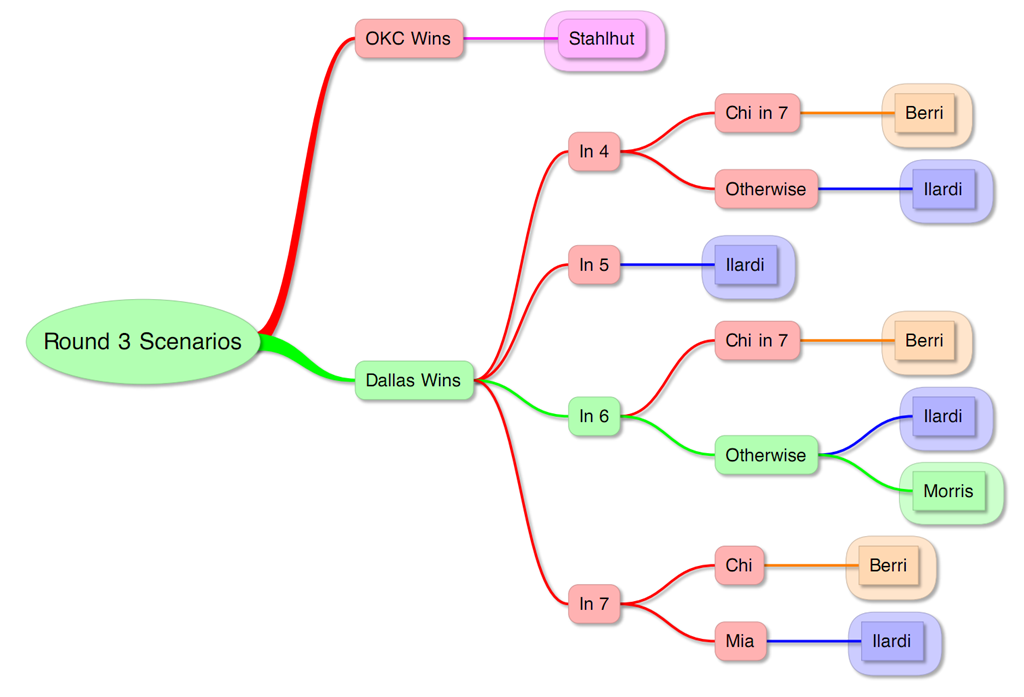This blog has gotten a bit more traffic and attention in recent weeks, so I think this is a good time to make a long-planned move to shift gears a bit as far as content. I will still be writing and posting the same types of longer articles that I always have, but I will also be posting shorter, less polished, more frequent, and generally more blog-like items, such as:
- Random thoughts, ideas, graphs, or speculative takes relating to the various sports analytics conflicts taking place in the blogosphere or in my head
- More preliminary results from my ongoing research and works in progress.
- Responses to reader comments and emails. If you’ve emailed me questions or followed the comments, you’ve probably noticed that I’ve given a lot of fairly detail replies, so I’m going to start posting some of those exchanges on the main page.
- Brief follow-ups and updates to individual items (e.g., how I was right about Tiger Woods not being himself).
- Links to relevant and/or interesting outside articles (though always with some comment or criticism).
- Site news and info, such as: how things are going in the Stat Geek Smackdown (now alone in 2nd), my new policy on rotating subtitles, the silly bet I lost to Arturo, etc.
- Occasional non-sports material. Don’t worry, most of my abstract-thinking time is spent on three subjects: Sports analysis, day-to-day applications of Bayes’ Theorem, and Hacker-God cosmology [Claimed!]. Fortunately, these are all pretty much the same, so if I go off topic a bit it should still be somewhat relevant.
So, to reflect the change, I’ve slightly altered the blog structure and layout, including altering the style sheets and switching to 3 columns. You should see 4 new feeds in the upper left:
- Everything: This will still be the landing page and default feed.
- Articles: This is for my longer (though not necessarily 30,000 word) pieces only (the most recent are also listed in the left column).
- Non-Articles: Not that I would encourage skipping my articles, but I’m providing this as an option in case anyone wants to subscribe to the feeds separately.
- Featured: This will be a feed of just my favorites from both sides.
For even less polished and more raw material, I’ve started tweeting more often than I used to, so I’ve expanded the Twitter feed in the right side column. I also have some moderate to big ideas for non-post content, which I should be rolling out in the near(ish) future.
If you hate the new setup (feed structure, layout, style, me, etc.), or if you have any suggestions for improvements, per usual, please let me know in the comments or email me.




